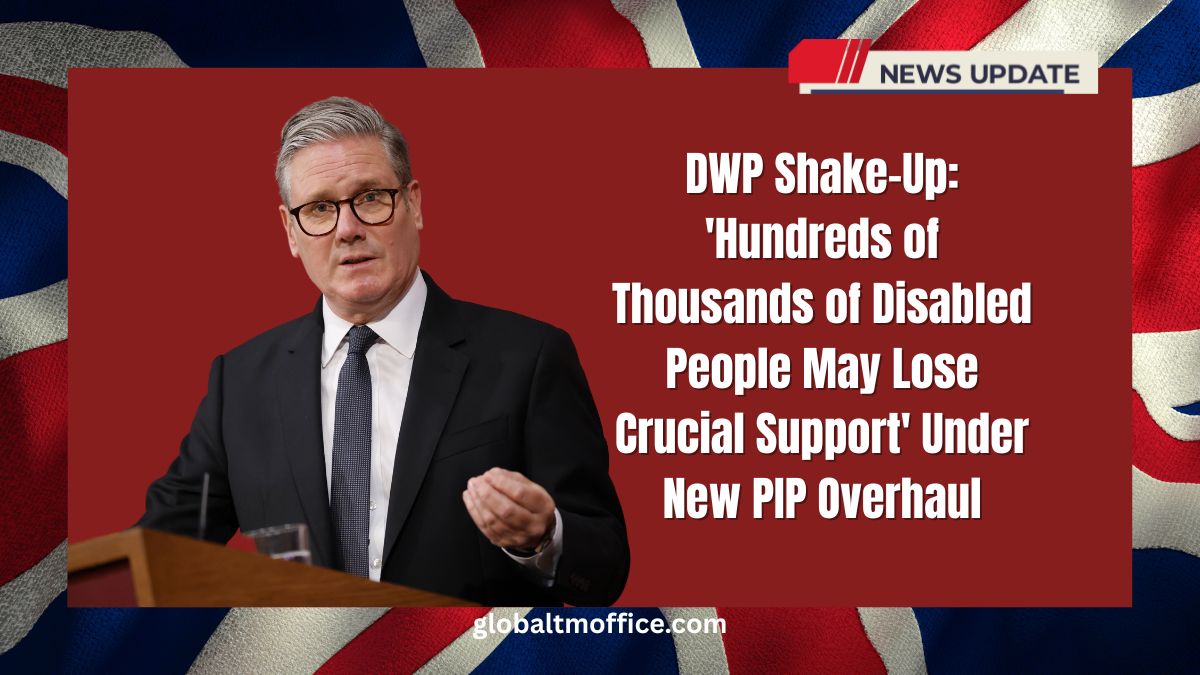A new analysis from the New Economics Foundation (NEF) challenges the government’s rationale behind proposed Personal Independence Payment (PIP) restrictions, asserting that financial struggle, not fraudulent claims, is the real cause behind the rising number of applications.
Government Claims vs NEF Findings
The government, supported by Labour’s recent proposals, has claimed that disability benefits are being misused, pointing to the rise in claimants outpacing the growth in the disabled population. They suggest this indicates support is going to undeserving applicants.
However, NEF’s detailed report released ahead of a parliamentary debate on PIP reforms refutes these claims.
It argues that PIP continues to reach the intended recipients—those with genuine disability-related needs—and that the increase in claims stems from growing economic hardship and disability prevalence.
Data Reveals Stable Success Rate in PIP Claims
The NEF study shows:
| PIP Metrics | Before Pandemic | Post-Pandemic |
|---|---|---|
| Disabled people claiming PIP | 40% | 46% |
| PIP claim success rate | ~50% | ~50% |
| Predictability of claim rates using deprivation data | Not available | 94% Accuracy |
These figures imply that while more people are applying for PIP, the approval rate has not increased, countering the narrative that the benefit is being overused or misdirected.
Key Drivers Behind the Surge in Claims
According to NEF, two dominant factors contribute to the increase in disability benefit claims:
- More individuals are now eligible due to higher rates of disability.
- Economic deprivation is compelling many, who once might not have claimed, to seek assistance.
The think tank emphasizes that this rise does not indicate abuse, but rather reflects genuine financial and health-related needs.
Upcoming Changes to PIP: What You Need to Know
Despite these findings, the UK Government is moving forward with PIP reforms, to be implemented in November 2026. The proposed changes include:
- A new minimum score threshold of four points in at least one daily living activity to qualify.
- Reassessments for all current claimants.
- Claimants who do not meet the revised criteria risk losing their support.
These reforms aim to narrow the benefit’s scope, potentially leaving those with moderate daily living challenges without assistance.
Additional Cuts to Energy Support for Pensioners
Further compounding the concerns, Chancellor Rachel Reeves has announced changes to energy bill assistance for pensioners.
Previously a universal payment of up to £300, it will now be means-tested, requiring eligibility for Pension Credit—a benefit administered by the Department for Work and Pensions (DWP).
Expert Warning Against Harmful Reforms
NEF senior economist Max Mosley stated that the research confirms PIP is effectively serving its purpose. He warned that cutting access to such a critical support system could deprive hundreds of thousands of disabled individuals of the help they depend on.
Mosley further cautioned that these changes could become as “politically toxic” as the controversial removal of the Winter Fuel Payment, stressing the potential political and social backlash.
The NEF’s compelling evidence highlights that PIP is still functioning properly, with most claims being valid and driven by increasing poverty and disability rates.
As the government prepares to tighten access by 2026, critics argue these measures risk hurting the very people the system is meant to support.
With both economic pressure and disability rates climbing, maintaining access to PIP remains crucial for protecting vulnerable citizens across the UK.
FAQs
What is the Personal Independence Payment (PIP)?
PIP is a UK government benefit designed to help individuals with long-term disabilities or health conditions meet additional living costs.
Why is the government planning to change PIP eligibility?
The government claims the rise in claimants is disproportionate to the increase in the disabled population and wants to target the most severely impacted individuals.
When will the new PIP rules take effect?
The new PIP eligibility criteria will begin in November 2026, including a minimum score requirement for daily living tasks.

